
臺灣非營利專業書評媒體。Openbook編輯部將提供原生報導,文化觀察,人物採訪與國內外重大出版消息。 https://linktr.ee/openbooktaiwan
Fantasy Island. Dialogue "Daily life in Taiwan may be the fantasy of the world: novelist Wu Mingyi x Ji Dawei
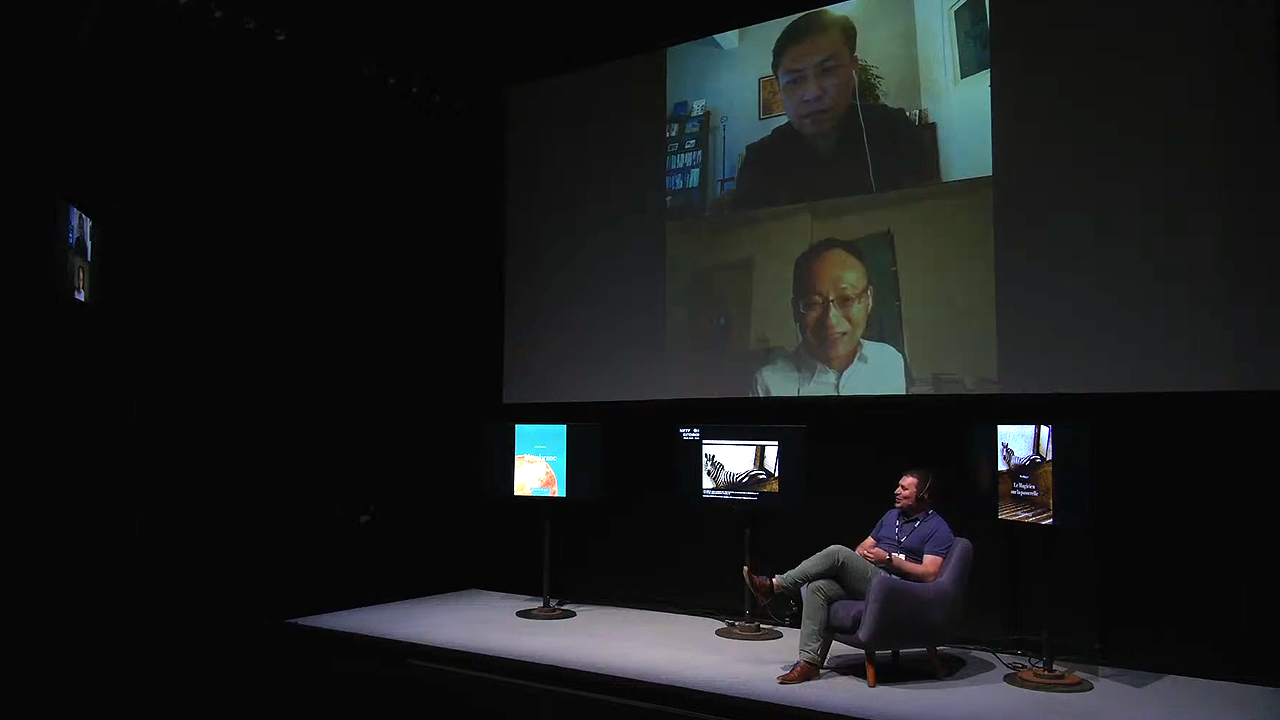
The "Literature of the Imaginary in Taiwan" forum was organized by Gwennaël Gaffric, an important promoter of introducing Taiwanese literature into France and the editor-in-chief of the "Taiwan Fiction Series" of L'Asiatheque. Hosted, the whole process will be live online, the following is the essence of the conversation.
● Date: July 8, 2021 (Thursday) 20:00-21:00
● Speakers: Wu Mingyi, Ji Dawei ● Moderator: Gwennaël Gaffric
➤ Things to learn from European cinema
Guan Shouqi : Hello teacher, first of all, I would like to invite you two to share which movies have influenced your literary growth.
Ji Dawei : Thank you, it's a pleasure to meet you here. I have to admit that when I first started writing novels in the 1990s, a lot of intellectual nourishment came from European cinema. The big reason was that Taiwan had just lifted martial law at the time, and young people had a desire to know the world, and European art films at that time were a more convenient and avant-garde window.
Wu Mingyi : I myself was greatly influenced by the film in the early stage of creation. I majored in communication at university and joined the school film club. For me at that time, being a film director was more attractive than being a writer, because the works I saw at that time that were more attractive to me were all is a film work.
A while ago, I gave a speech in a small bookstore, and I talked about 10 films that influenced my own creative view. It happened to fit the topic of this conversation. I will share with you the list of European films among these 10 films.
The first one was the Italian film Ladri di biciclette (Ladri di biciclette), which I watched when I was in college. At that time, because of seeing this film, I became interested in "a creator should be concerned about issues other than himself". .
The second is the Belgian movie Toto the Hero, the last scene of this movie is very fantastic: the curtain of the truck is pulled up and the whole family is playing music, this scene has always influenced me a lot, you can See your life. Toto, the character in the movie, later became the little boy in my novel "The Man with Compound Eyes".
For the third film, I chose the French film "Trois Couleurs: Rouge". This film inspired me a lot because of the performance of the "Blue, White and Red Trilogy" at that time: a work It can span multiple films, maybe only weakly, but in the end it can show several aspects of the director that were important in that period.
The fourth is also a french film - "Hasards ou coïncidences" ( Hasards ou coïncidences ), this film was very shocking when I saw it myself, because it used a very multi-layered performance art, including mime, video, live dance , piano performance and other performance forms, every element is placed in place very well. In this film, many incidents and coincidences are used to explore the issues of philosophy of life. The story has many levels of inspiration. This film can be said to have influenced me the most, and it still remains to this day.
The last one is the spanish movie "Hable con ella" ( Hable con ella ). In this movie, I really like the role of a female matador. When she comes on stage, there is a process of dressing up, which is very conscious and makes I got a whole new understanding of Spanish culture.
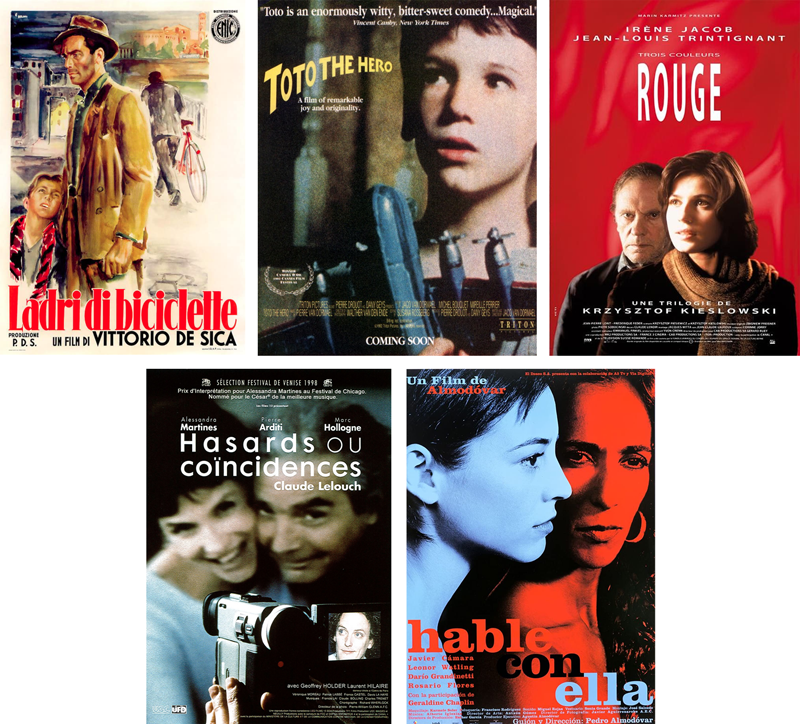
➤Text and image, the city landscape construction is very different
Guan Shouqi : I just introduced "The Magician on the Overpass" to the audience. Can you ask Mr. Mingyi to talk about the different expressions between film and television works and novels?
Wu Mingyi : In novels, we use words to shape a scene, but it is very difficult to make that scene evoke the same feeling in each reader's heart. Usually, what you evoke is a completely different feeling. For example, the China Shopping Mall I wrote in the novel, because it has been demolished now, I believe that for the new generation of readers, if he does not go to google to search for pictures, his feelings will be different.
In contrast, the movie will use human and material resources to reshape a scene, and the reshaped scene may be like the cosmic landscape we saw in such an early age in "Star Wars". Or like "The Magician on the Flyover", what you see is a city landscape that has disappeared, but the image behind it is not necessarily the same as that created by the text.
I am reading Philip. When Philip Kindred Dick wrote the novel Do Androids Dream of Electric Sheep ? 2049 ( Blade Runner 2049 ) atmosphere, I think are two very different landscapes.
Compared to images, text has a deeper and more powerful aspect: it will have many inner monologues. It is not easy for movies to constantly express the inner monologues of characters, but novels can write down these places, allowing readers to go back and flip through certain pages and regurgitate constantly. But generally speaking, the time to watch a movie is fleeting.
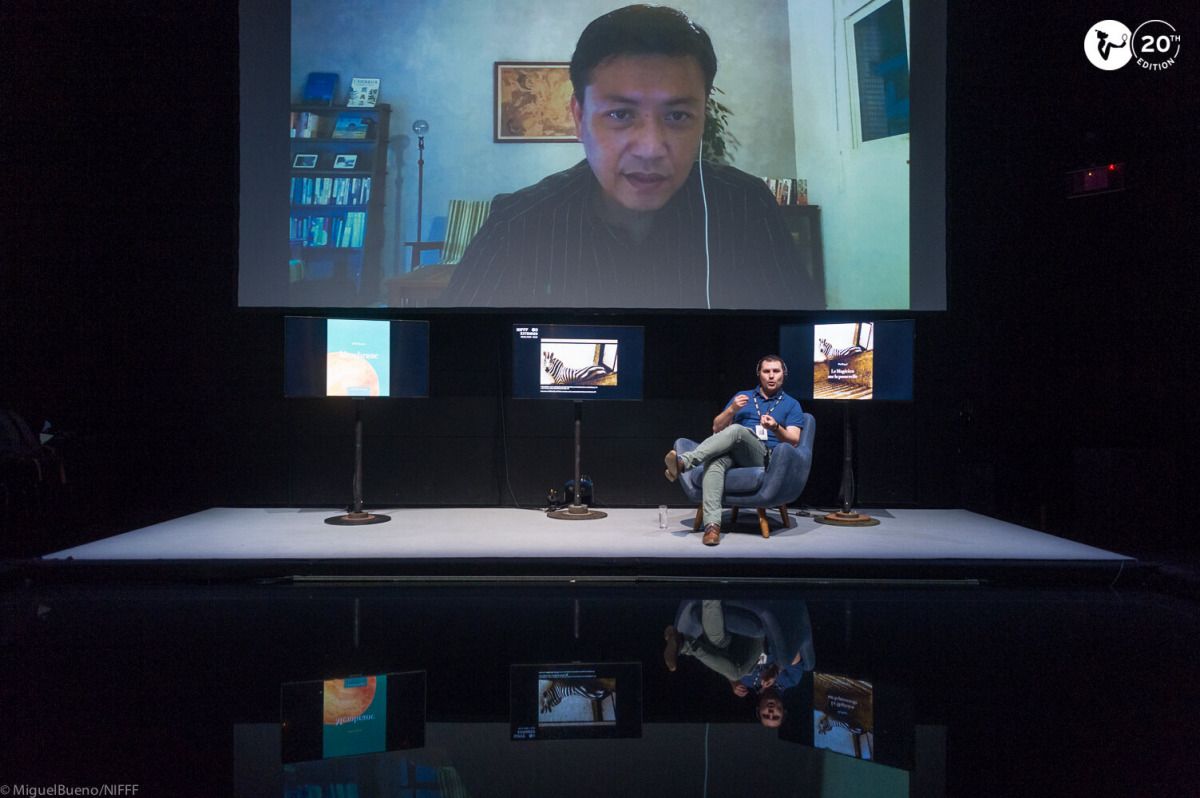
➤ Sci-fi as the possibility of liberation: "Notes of a Crocodile" and "Film"
Guan Shouqi : I would like to ask you two, what is the difference between Taiwan's genre films—horror films, sci-fi films, and fantasy films—from other Asian countries?
Ji Dawei : I didn't have a chance to talk about the films that influenced me just now, so I'll say it by the way.
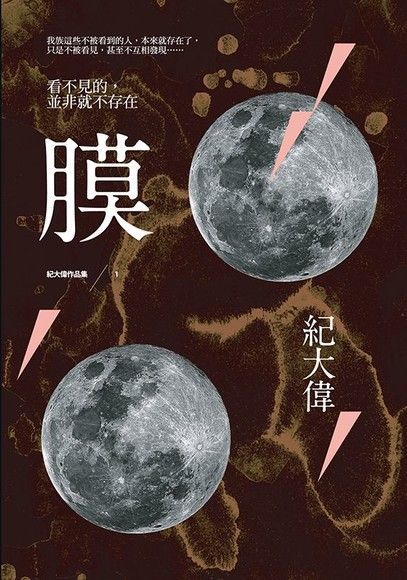
When it comes to the relationship between film and literature, what I want to mention is that my works are considered gay literature, and Qiu Miaojin, a Taiwanese writer who is highly regarded in France, is also known for his gay themes. For example, in my "Film", Italian director Pier Paolo Pasolini was mentioned, and Qiu Miaojin's "Montmartre Posthumous Note" and "Notes of a Crocodile" also mentioned a lot of movies. In the 1990s, we didn't see a model to refer to in Taiwan at that time, so we all looked for a model from European films.
Qiu Miaojin's "Crocodile Notes" is similar to my "Membrane", that is, we all use a fantasy character as a stand-in for homosexuality. For example, the crocodile in "Crocodile Notes" is similar to other people's stand-ins. When I was writing "Film" back then, if I hadn't written it in the form of science fiction, I wouldn't have known how to write it, because at that time we were facing a relatively conservative reality, and science fiction seemed to be a space that offered us liberation.
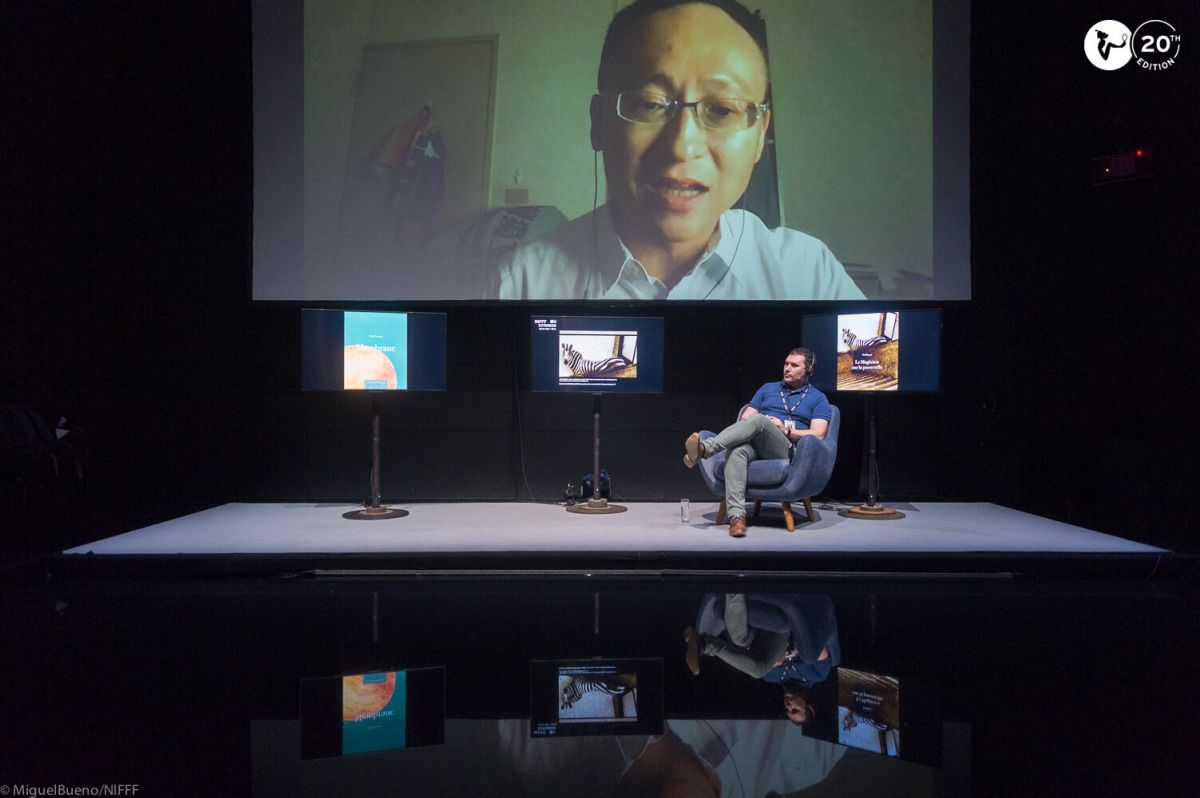
➤Fantasy/Sci-Fi Resources in Taiwan: Taoist System, Aboriginal Mythology, and Natural Resources
Wu Mingyi : Regarding the difference between Taiwan's science fiction and fantasy and other Asian countries, I don't know much about this topic, but I think Chinese science fiction and fantasy movies, because the Communist Party is atheistic, they use folk religious themes. There are very few works. In recent years, in order to express their "great country" image, China's science fiction films have also moved in two directions. One is the wonderful works in Chinese classics, such as "Fengshen Bang" and "Journey to the West". to extract some elements from it.
The second direction is that in order to shape the image of a "great country", many films have begun to refer to Hollywood in the United States - the story of using the American science center to lead the world, search the universe, or fight against foreign forces. In recent years more.
But I think the biggest problem is the development under the leadership of atheism. In fact, there are many different ethnic groups in China, and their culture and folk stories and legends are rarely presented in these science fiction and fantasy works. I think they are also restricted under certain circumstances.
From my own reading experience, some of the sci-fi and fantasy films in Taiwan are actually from Japan. For example, we like "Dragon Ball" and "Lightning Knight", but they are actually Japanese animations. come.
There are two movies I have seen that I find very interesting. One is called "The Hero Sika Deer", which is a Taiwanese film. It is a script based on a fairy tale. The actors all wear animal costumes to perform, which is very interesting. . The other is "Guan Gong vs Aliens", which is rewritten from the Chinese theme. However, in recent years, I have seen more and more stories extracted from Taiwan's local legends and cultural systems.
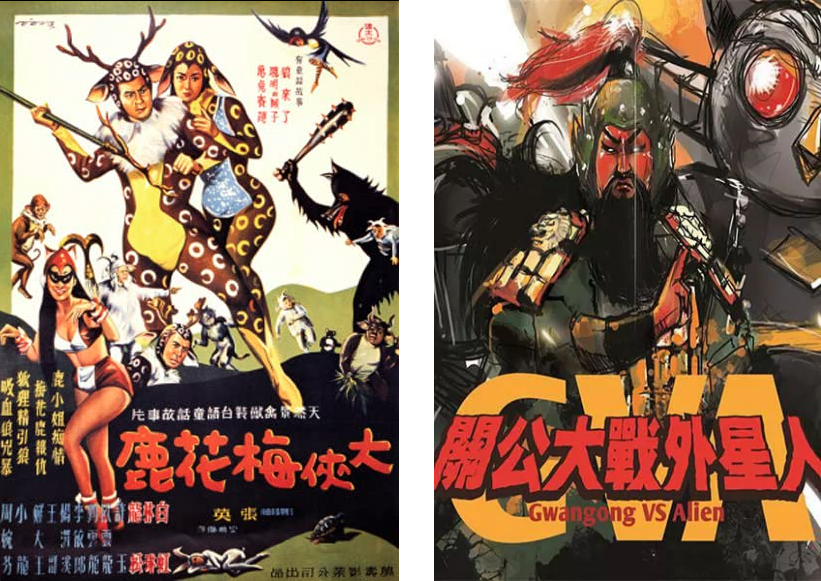
My favorite Taiwanese fantasy movie is a cartoon called "Magic Granny". It uses some local beliefs and legends in Taiwan. Because it is very close to my own family background, I feel very friendly.
I don't think this kind of spells, Taoist priests, and children's stories, as well as the myths and legends of the aborigines, have been more fully developed. These two systems, as well as Taiwan's forests and natural environment, will be a good background for the development of Taiwanese fantasy literature.
Finally, let me mention Hong Kong. Hong Kong has absolutely no restrictions on folklore in Chinese films, so it has a lot of works on this subject. One of my favorite Hong Kong fantasy films is Stephen Chow's "Ji Gong", which is very special with the story of a famous Chinese god. Because Hong Kong's previous creative environment was very free, so many dynamic themes appeared.
➤ Science fiction cannot be separated from reality, genre and social scene
Ji Dawei : Actually, in Taiwan, if we want to talk about fantasy literature and fantasy movies, it is obvious that ghost stories are the most popular. Writers who write ghost stories are more popular than those who write science fiction. The same is true of movies. We found that many young Taiwanese directors want to make horror movies the most, and horror movies are very popular in Taiwan.
In terms of literature, like Mr. Wu Mingyi's novels, they sell very well, but Mr. Wu's works are classified as pure literature in Taiwan; if it is popular literature and popular literature, in fact, the fantasy field is still dominated by horror novels.
But here I still want to talk a little more about science fiction. In fact, there are many writers in their thirties and forties in Taiwan, and more and more people want to write science fiction. Many of these novelists, including me, actually focus on inner activities, or the exploration of memory and soul. Unlike the space adventures that Chinese science fiction likes, Taiwanese science fiction is not about space adventures. I think this may be related to the fact that Taiwanese people like to reflect on history, so there are many science fiction novels that reflect on history.
Wu Mingyi : In response to what Mr. Ji Dawei said, there are many excellent science fiction writers in Taiwan. Regarding the lack of such a theme of space adventure, my own thought is that this may also be related to the reality of Taiwan. There is no way for science fiction to be divorced from reality. It is very reasonable to write about the adventure of Mars in science fiction based on the United States, because this country may be exposed to such things.
Taiwan has a very unique natural environment and aboriginal legends. There are deep ocean trenches next to Taiwan, and there are very mysterious mountains on the island. I think if the new generation of writers have such experiences in the future, it is very likely that they will develop from here. Another science fiction story.
➤ The daily life of others may be your magic
Guan Shouqi : We received some questions from the live online audience. This is a question for Mr. Wu Mingyi: It is often said that your works are about magic. What do you think? Are you intentionally trying to write magical realism?
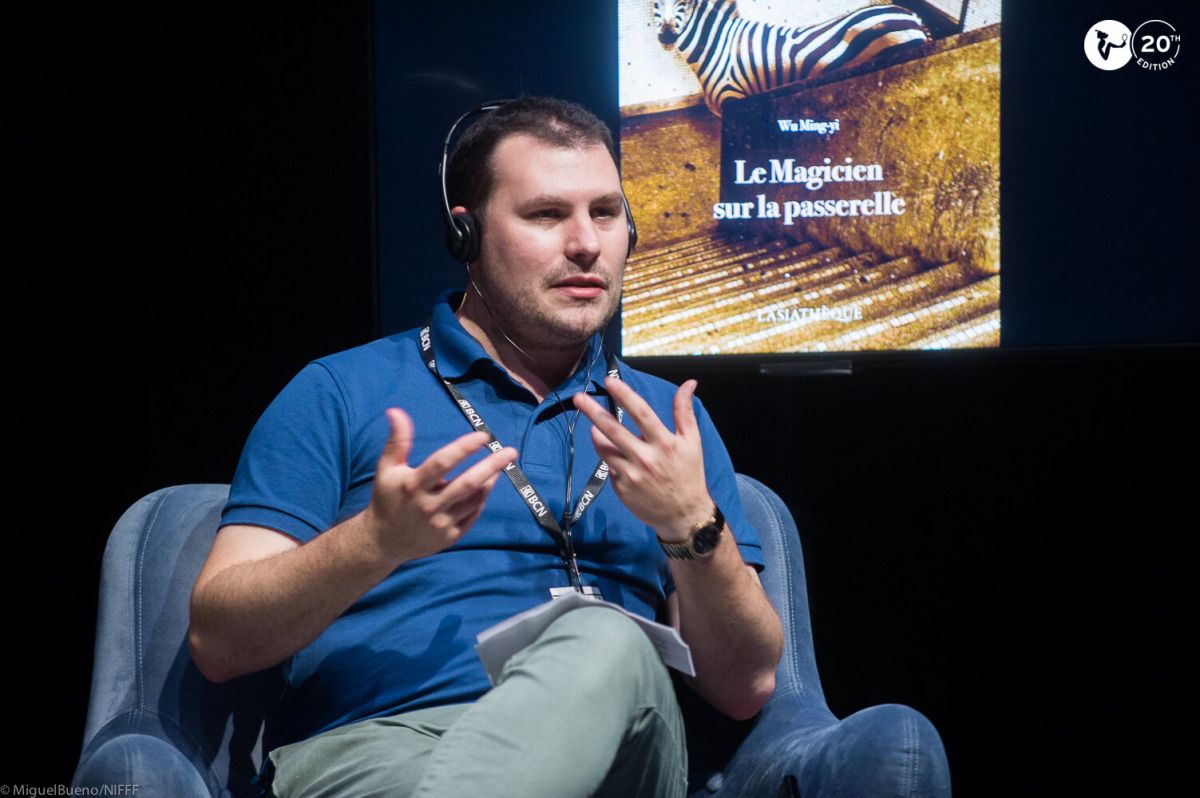
Wu Mingyi : When I first started writing novels, I was very much like a traditional Taiwanese realist writer, because the works I read and liked at that time belonged to the realist generation in Taiwan. But then I gradually discovered that my worldview or the way I care about people and things is not the same as theirs.
I was very influenced by the place where I lived (as a child) - the Zhonghua Shopping Center. At that time, my mother would definitely go to see the child every week. Whether it was a trip, a treat, or who had a daughter in our family Friends or boyfriends, marriage, illness... Any trivial things in life are determined by ghosts and gods, not ours.
So for me that's the reality of life, not magic, but a part of me. Later, because of my education, my concept was completely different from that of my mother, but I grew up in that environment. So, when I grew up, I went to aboriginal tribes, and I was very able to accept their spiritual concept of nature.
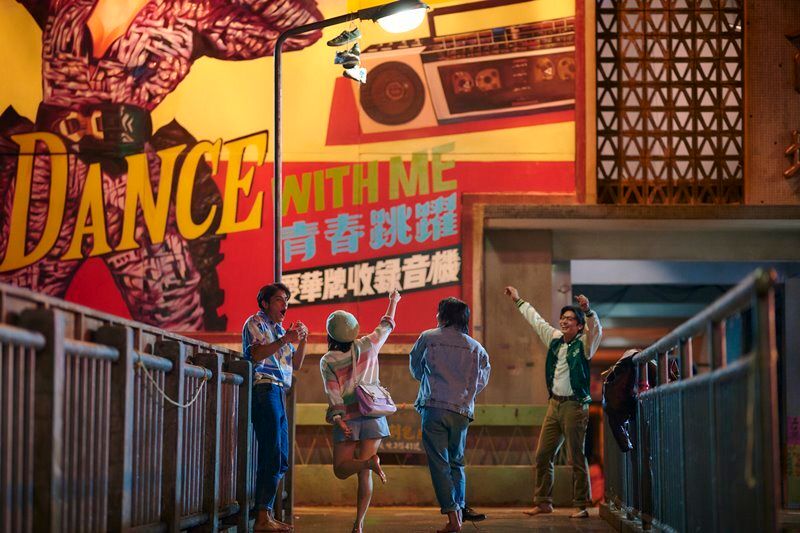
➤ Mining materials from daily life
Guan Shouqi : The next question is about aboriginal culture. Are there any aboriginal elements in fantasy, science fiction, magic, horror novels or movies?
Wu Mingyi : Before the lifting of martial law in Taiwan, our education was to degrade the aborigines into a very local culture, just like China would say that other ethnic groups in their territory are "minorities", as if only the Han nationality is the core. Taiwan has long ignored the aborigines.
Let me tell you a short story: there is a female scientist Huang Meixiu in Taiwan who studies black bears. She is one of the very few female scientists who study black bears. When she first returned to Taiwan, she couldn't find a bear, because she had to find a bear in her research. The Bunun aborigines who helped her lead the way said, "I can't find it, because I haven't dreamed of it yet." Of course, Teacher Huang doesn't believe it will appear. But then one morning, the Bunun elder brother said, "I dreamed that we can find the bear today." They did find the bear that day.
When Ms. Huang Meixiu wrote this paragraph in her scientific record, I thought it was great as a novelist, and this is where we are now starting to have a spiritual dialogue with aboriginal culture. I believe that there will be more and more excellent films or literary works about aboriginal culture in Taiwan in the future.
Guan Shouqi: I have a question for Mr. Ji Dawei: What is the most favorable environment for creating science fiction in Taiwan?
Ji Dawei : Just now, Mr. Wu Mingyi said that American science fiction has its own environment, so their novels will write about the theme of landing on Mars; China has a mentality of "rising power", so they will also have a lot of space adventures. I think in Taiwan, people who write science fiction do not think of Taiwan as a big country or a powerful country, so they will dig for materials in their daily life.
I also agree with what Mr. Wu said. For Taiwanese science fiction writers, the ocean around Taiwan is a good source of material, not space. But I think what's more important is that young people and people in Taiwan have had a lot of energy to change politics in the past 10 years, such as the Sunflower Movement in Taiwan, and the legalization of gay marriage passed in the past few years. . I think people in Taiwan who write science fiction now will naturally write about all kinds of people in their novels - such as homosexuals and transgender people, without any taboos. Perhaps the "science" of Taiwanese science fiction is not very developed, but it is very liberal in politics and gender.
In fact, I think Taiwanese people who write science fiction or fantasy novels have a lot of pressure on how to show enough avant-garde? How can we keep readers' eyes open? This is a big challenge.
➤ What if Qiu Miaojin continued to write?
Guan Shouqi : An audience member watched episodes 1 and 2 of the "Magician on the Flyover" series. He felt that he felt the same way, but he wanted to ask: Why is there a zebra?
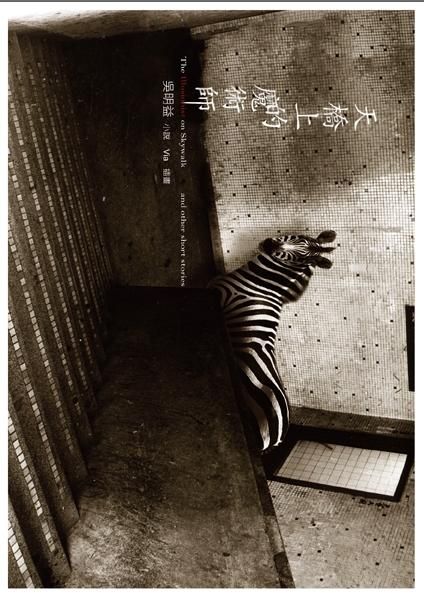
Wu Mingyi : For this question, the album will have its own interpretation. In my novel, there is also a certain interpretation of my own novel. It may be necessary to read the fourth chapter of the novel, and the album will have to read very later. Every creator has a feeling for the interpretation of this thing as a symbol.
Guan Shouqi: Questions from the online audience. Teacher Ji Dawei just said that because of the limitations of the environment and social reality, we rely on fantasy elements, such as crocodiles, to express. The current environment has changed, and Taiwan has a high degree of freedom in publishing and creating. I wonder what kind of development will science fiction and fantasy works turn to in such a social environment? When we can talk about everything, what kind of mission or meaning does science fiction and fantasy carry?
Ji Dawei : This is a very good question. If Qiu Miaojin is still writing, does she still need to write in the way she imagined at that time? Probably not.
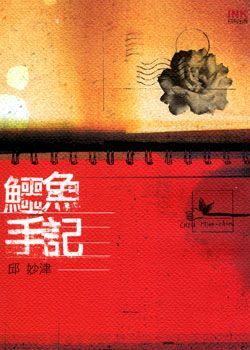
We can find that there are many lesbian-themed writers in Taiwan. They just write about everyday life. Science fiction or fantasy is not necessarily a necessary outlet for writing about lesbianism. But I think for many friends who are concerned about gay issues, there are still a lot of science and technology topics to write about. For example, many gays want to have their own children, gays have their own test-tube babies, artificial reproduction, how to control DNA... still involved to very high technology. So I think there should still be a lot of writers who want to write about Cyber, or stories about artificial humans and robots. Because these are closely related to how to reproduce the next generation, or how to make one's own lover and partner.
Guan Shouqi : It seems that the time has come. I am almost here today. Thank you two teachers. ●( The original text was first published on the OPENBOOK official website on 2021-08-18)
Planning: Cultural Content Planning Institute, Openbook Reading Journal Writing: Sado Shou, Editor-in-charge of Openbook Editorial Department: Zhou Yueying, Wu Zhiliang, Chen Kaiyun Vision: Lin Yuxin
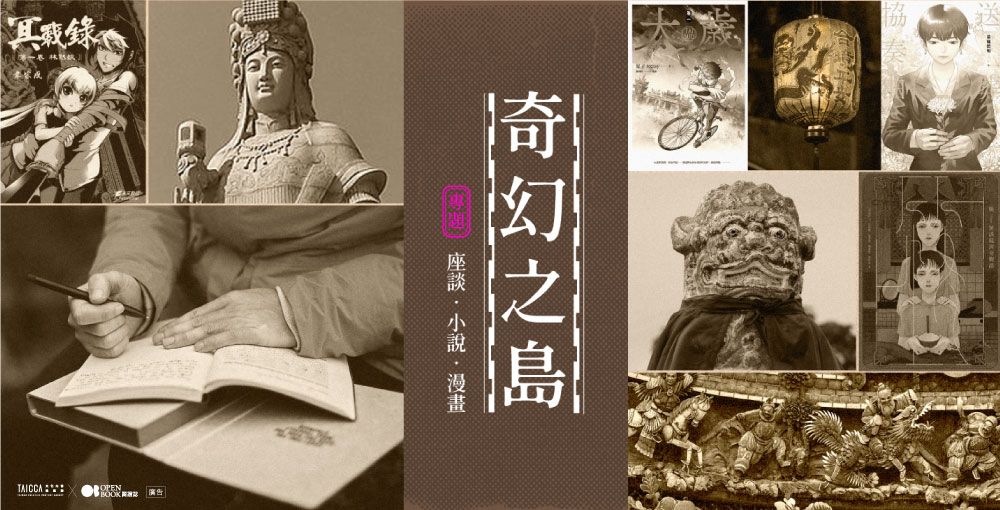
- Dialogue" Taiwan's daily life may be the world's fantasy: novelist Wu Mingyi x Ji Dawei
- "Fiction" From Folklore, Taoist System to Aboriginal Mythology: Using Taiwanese Fantasy to Introduce Yourself to the International
- Manga" integrates China and Japan, with more local elements, diversity and tolerance, creating a charming image of Taiwan
Like my work?
Don't forget to support or like, so I know you are with me..
Comment…